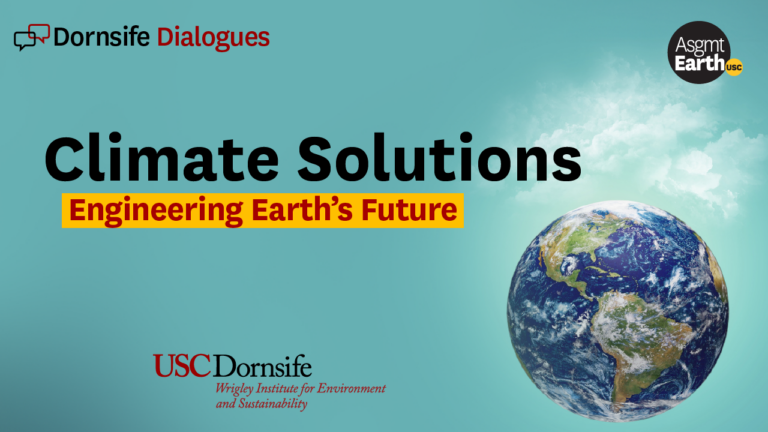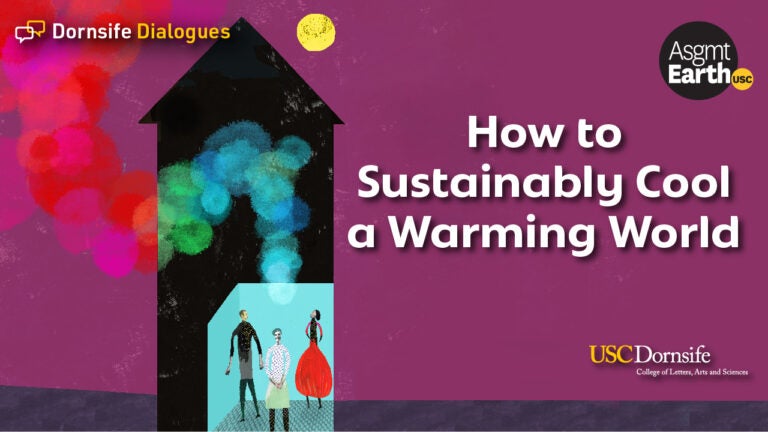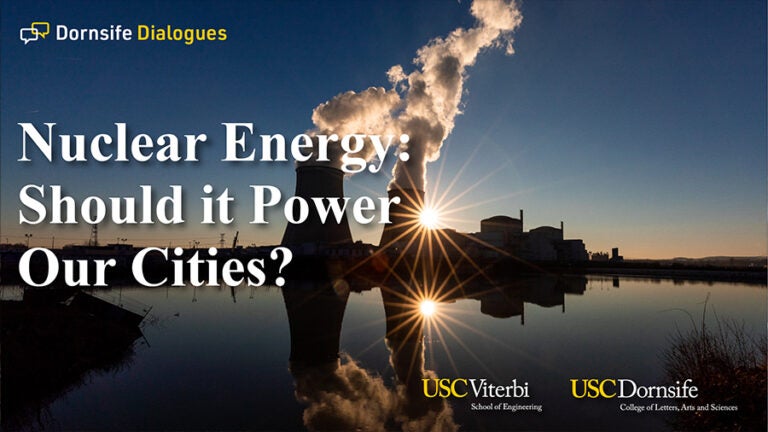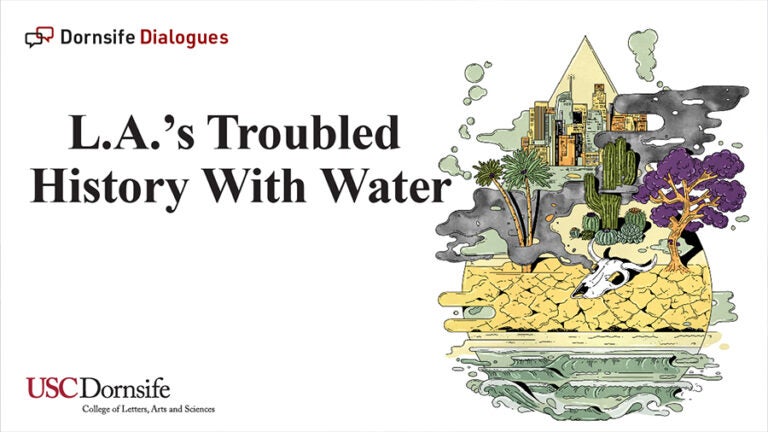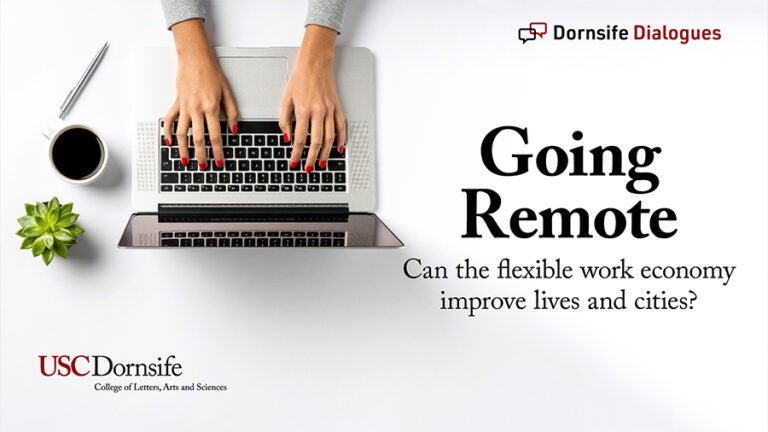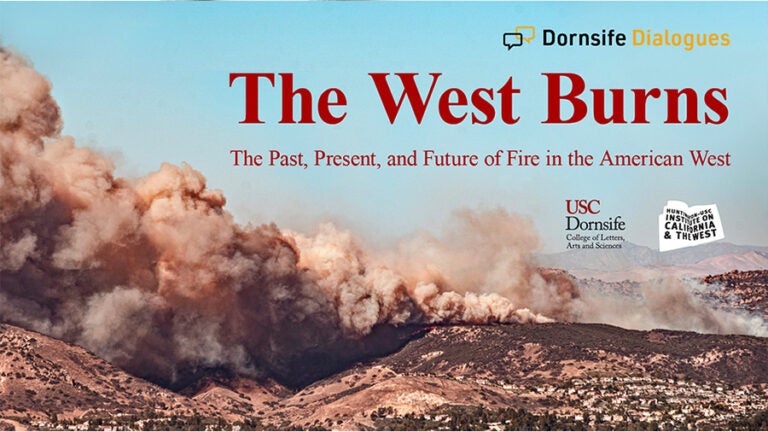
Sustainability: Human Factors
An Ecosystem of Innovation
Effective technology already exists to shape a new energy economy, cultivate healthier communities, and protect vulnerable ecosystems. We are limited today not by innovation, but by human choices. The challenge is to figure out how we as a society can implement what is available more quickly, equitably, and at scale.
Through our school-wide initiative, USC Dornsife grapples with complex questions related to the human dimensions of sustainability — the economics, politics, and mindsets that continue to stand in the way of making critical progress during this short window of opportunity.
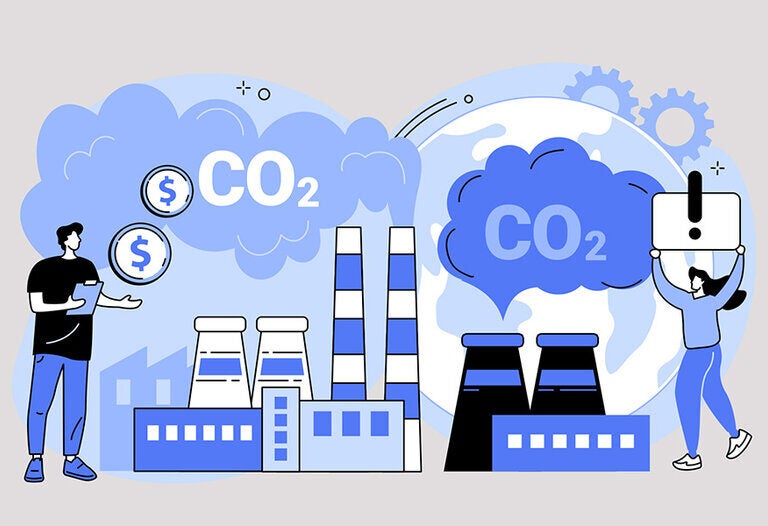
Human Factors in the News
LA fires showed how much neighborliness matters for wildfire safety
Managing fire risk is also about caring for one’s community. Learning this ethos can begin in our schools.
Two essential coral species are now functionally extinct — but should we give up hope?
After a devastating marine heatwave hit the Florida Keys and Dry Tortugas in 2023, the populations of two essential reef-building corals are now too low to fulfill their ecological roles. However, coral researchers are not giving up hope yet.
LA’s shade gap: Many think their streets are covered – they’re not
Nearly half of Angelenos say their block has enough shade even though most live on tree-sparse streets. A new LABarometer report also reveals how race, politics and education shape support for greening the city.
USC Dornsife spatial sciences professor wins Nobel Sustainability Trust Award
Associate Professor Geoff Boeing of USC Dornsife’s Spatial Sciences Institute and USC Price School leads a global research initiative that helps cities around the world measure their progress toward becoming healthier and more sustainable.
$5M grant strengthens USC Equity Research Institute’s mission for climate and economic justice
The Waverly Street Foundation grant — the largest in ERI’s history — will help the institute shape public understanding, support frontline advocates, and train scholars to advance climate and economic justice.
Scientists reveal how microbes collaborate to consume potent greenhouse gas
Microbes that filter methane from the ocean floor may hold new clues to addressing climate change, USC Dornsife researchers and collaborators find.
US government may be abandoning the global climate fight, but new leaders are filling the void – including China
Trump’s efforts haven’t sunk global efforts to fight climate change — instead, new leaders are stepping up and working together, even within the US.
USC teams up with ShadeLA coalition to cool Los Angeles ahead of 2028
ShadeLA, a new USC-led initiative, unites civic, academic and community partners to expand urban tree canopy and shade infrastructure — building lasting heat resilience for Angelenos well beyond 2028.
Kiss of Life: Experts Focus on Preserving the Planet
Whether furthering the discussion on negotiating nuclear disarmament or working on biodiversity preservation, USC Dornsife’s cross-disciplinary efforts aim to combat Earth’s greatest threats and protect the planet’s fragile ecosystems.
Preserving the Amazon
The professor helping revive the region’s vital lands.
How USC Sea Grant and partners came together to save two species of fish during the 2025 Los Angeles fires
The heroic volunteer rescue efforts in late January 2025, saved 271 Steelhead trout and 760 tidewater gobies.
$1 million FireAid grant boosts USC Dornsife researchers’ wildfire soil testing program
The new funding will expand USC Dornsife’s soil testing campaign in the aftermath of the Los Angeles wildfires — screening for a wider range of contaminants, speeding up lab results and increasing community outreach.
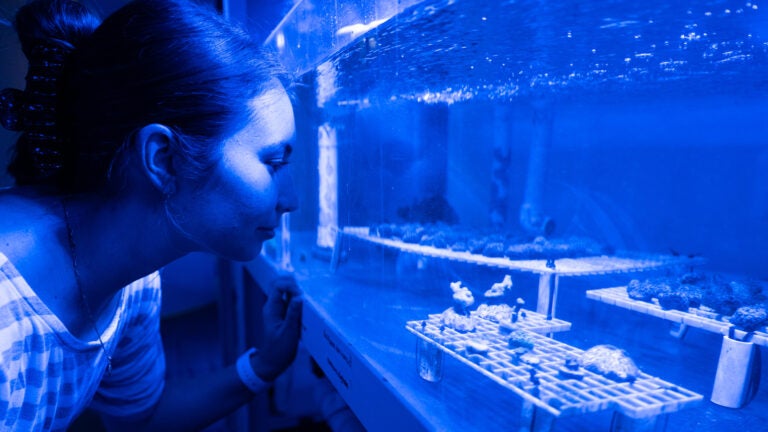
USC Wrigley Institute for Environment and Sustainability
Providing leadership for the Sustainability: Human Factors initiative, the USC Wrigley Institute has expanded its mission to connect USC Dornsife’s natural science researchers more deeply with our academic strength across the social sciences and humanities. Students engage through a wide range of research and internship opportunities, as well as a residential college hosted at the Wrigley Marine Science Center on Catalina Island.
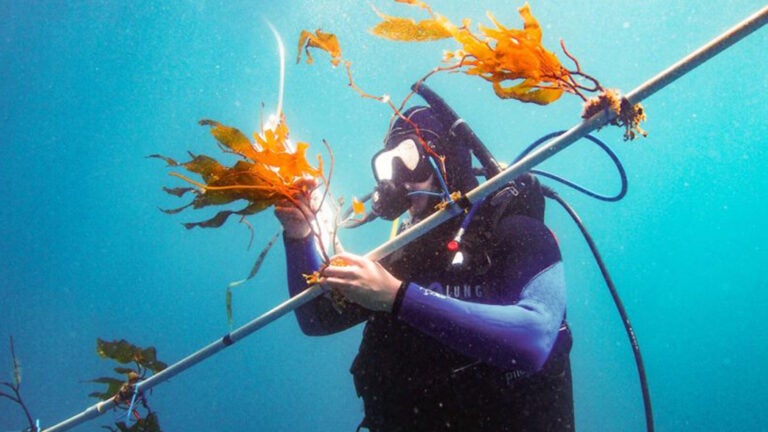
The Blue Economy
It doesn’t have to be a zero-sum game. We can use ocean resources to spur economic growth and improve livelihoods without harming marine ecosystems. With longstanding strength in marine biology, Earth sciences, chemistry, and related fields, USC Dornsife is positioned to lead innovation focused on the blue economy.
Learn More:
USC Sea Grant Program
Kelp Aquaculture for Sustainability
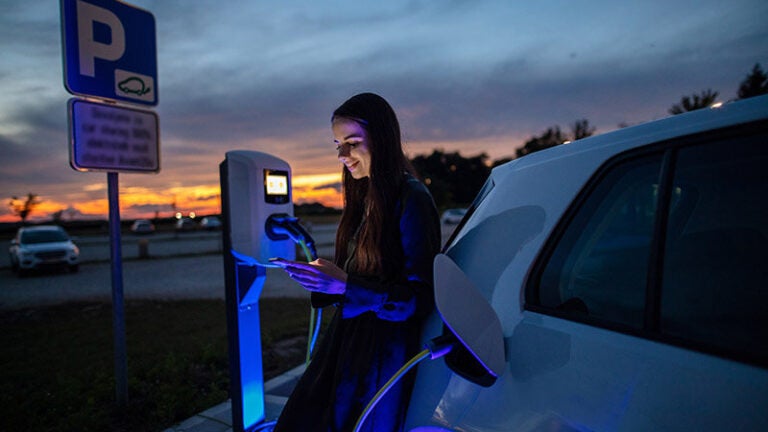
The Green Economy
USC’s environmental economists help society devise new “rules of the game” to spark green economic growth and adapt to the effects of climate change, while shining light on the vast opportunities to create new wealth, stable governments, and equitable communities.
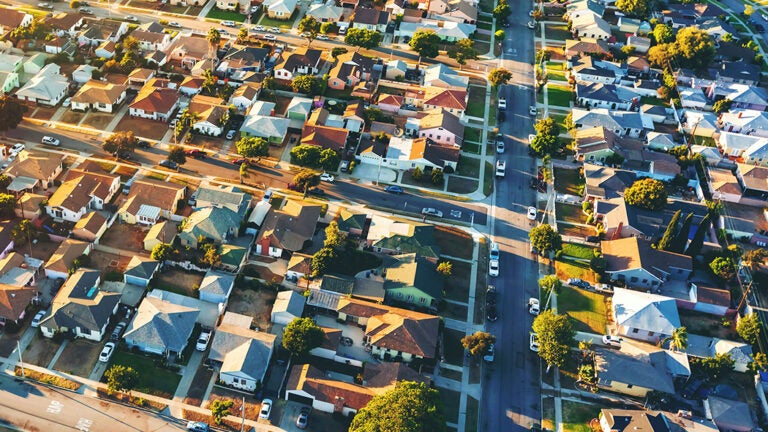
Sustainable Cities
What will it take to make urban environments greener, more affordable, more equitable, and healthier for everyone? At USC, spatial scientists, sociologists, urban planners, and policy experts help decision makers navigate competing tensions to shape a future where growing urban communities can thrive in an ecologically meaningful way.
Learn More
Spatial Sciences Institute
Middle East Studies
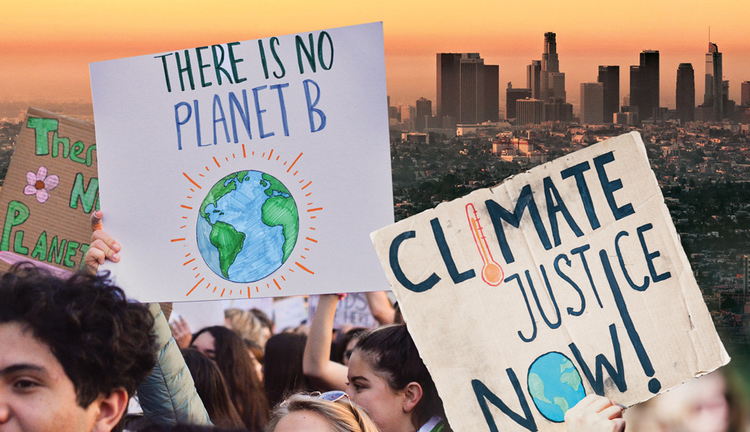
Community Engagement with Environmental Challenges
Success in building a sustainable society requires that all people can realize their highest potential without interruption by environmental challenges. Experts at USC Dornsife explore new ways to reduce the distribution of environmental damages on different communities, helping to ensure that everyone thrives together.
Learn More
Equity Research Institute
Precarious Ecologies
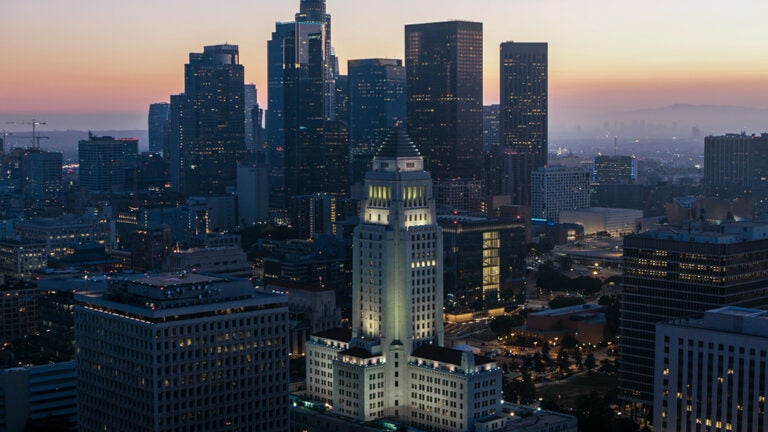
Accelerating Policy
Sustainability issues do not appear in shades of red or blue. As a national leader in practical politics and public policy, USC Dornsife provides an intellectual environment in which policymakers, business leaders, and academic researchers can work together to break through political roadblocks that stall the adoption of sustainability solutions.
Learn More
Climate Forward
Security and Political Economy Lab (SPEC)
USC Wrigley Institute Center for Social Transformation
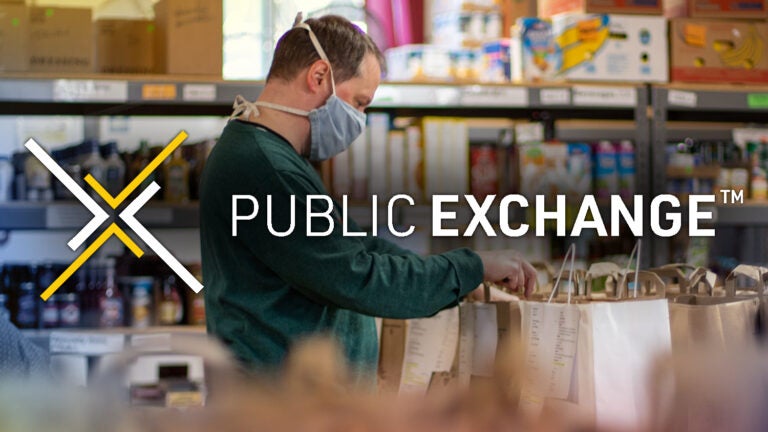
Public Exchange
To meet the growing demand for research related to climate resilience and “green” initiatives, Public Exchange recently launched a climate and sustainability practice that helps policymakers and organizations access academic expertise needed to move the needle.
Learn More
USC Urban Trees Initiative
Climate Change Terminology
Climate Forward
The signature USC Dornsife Climate Forward conference is an annual event that explores politically realistic solutions to address the challenges associated with a changing climate. The 2025 conference focused on finding practical solutions to climate change and identifying the political obstacles to implementing those changes.
Garret Graves on Being Hopeful, Coming Together
Garret Graves Former U.S. Representative (R-LA)Barbara Boxer on States Taking the Lead
Barbara Boxer Former U.S. Senator (D-CA)Joe Árvai on Advice to Students
Joe Árvai Director, USC Wrigley Institute for Environment and SustainabilityEquity Research Institute
Under the leadership of Distinguished Professor Manuel Pastor, ERI uses data analysis to power social change with an emphasis on the impacts of climate change, air pollution, and urban heat zones on communities of color. Among ERI’s projects, researchers use geographic information systems to visualize and analyze demographic and economic shifts that inform state policy and “Green Zone” initiatives.
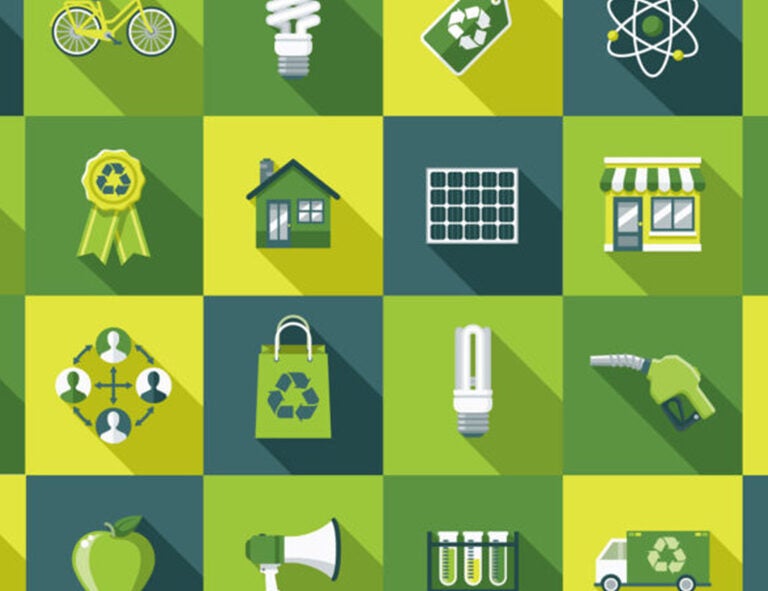
The West On Fire
At the Huntington-USC Institute on California and the West, a team led by Professor William Deverell places western wildfire in historical context and broadens public awareness of the region’s relationship with fire. Pulling together ecologists, Indigenous fire practitioners, U.S. Forest Service personnel, Earth scientists, economists, political scientists, journalists, and many others, The West on Fire initiative is a timely opportunity to develop new ways of thinking about fire in the region.
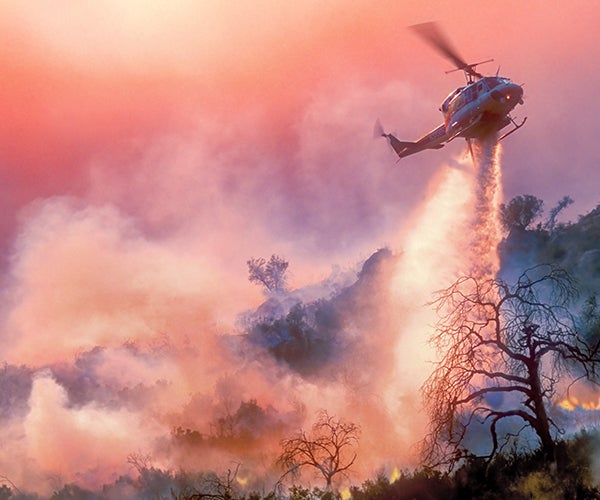
Dornsife Dialogues: Engineering Earth’s Future
The Dornsife Dialogues online series and podcast brings together leading scholars and distinguished alumni from USC to share research-based findings and fresh insight on timely topics — including several events focused on the human factors of sustainability.
Recent Sustainability Events
Climate Solutions: Engineering Earth’s Future
As climate change intensifies across the planet, attention is turning toward technologies that offer novel ways to decarbonize our economy and our atmosphere. Yet, these solutions are not without their critics, who warn about unforeseen environmental and social repercussions.
How to Sustainably Cool a Warming World
As Earth’s temperature rises due to the effects of climate change, cooling the air in our lived environments is increasingly crucial. So, how do we meet the growing demand for cooling in a manner that is sustainable, energy-efficient, and accessible to all?
Nuclear Energy: Should it Power Our Cities?
A growing number of political leaders and environmentalists support a renewed investment in nuclear power. Should it be a part of the clean energy strategy?
L.A.’s Troubled History With Water
What lessons can we learn from more than 100 years ago, when L.A.’s water was an even more hotly contested commodity than it is today?
Going Remote: Can the Flexible Work Economy Improve Lives and Cities?
Learn how remote work is likely to affect workers’ quality of life, the profitability of firms, and the economic geography of cities and suburbs.
The West Burns: The Past, Present, and Future of the American West
Understand the history of fire in the West, including Indigenous fire practices and fire’s many environmental legacies, which is crucial to determining a more sustainable path forward.















